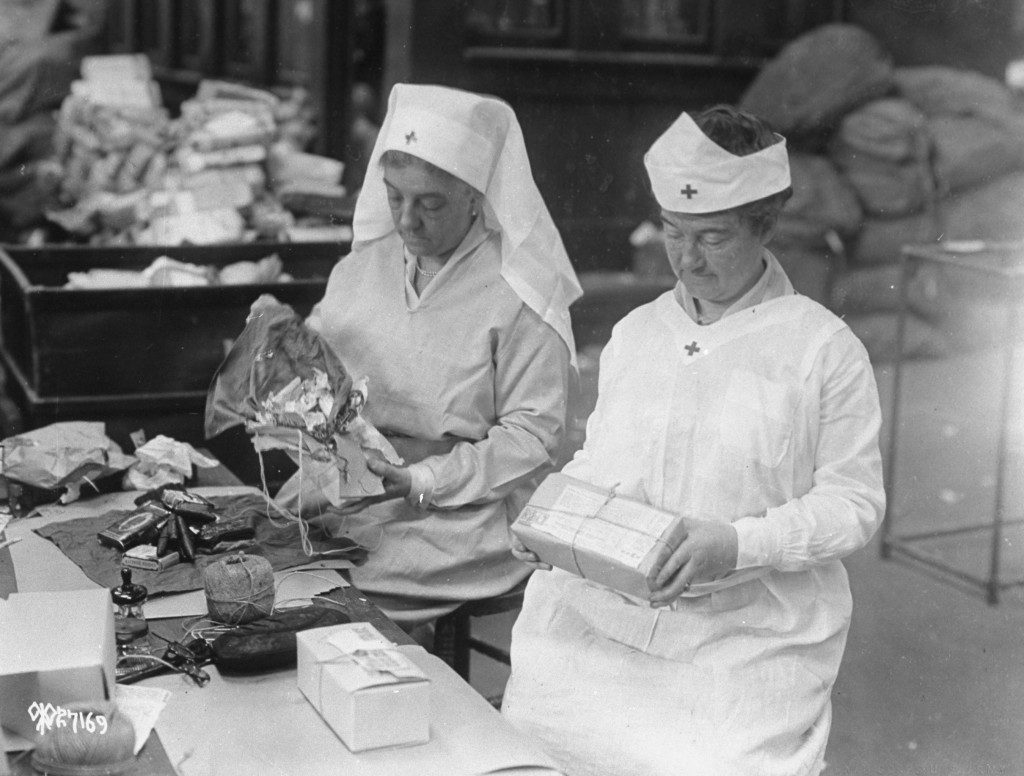Humanity, impartiality, and voluntary service, are just a few of the fundamental principles of the Global Red Cross Network. The American Red Cross was established to “prevent and alleviate human suffering in the face of the emergencies by mobilizing the power of volunteers and the generosity of donors.”1 To this day, the American Red Cross continues to help alleviate suffering and help those in need, all thanks to the contributions and relentless efforts of its founder Clara Barton.

The American National Red Cross Society, known as the American Red Cross, in Washington, D.C., was established on May 21, 1881 by Clara Harlowe Barton.2 Before establishing the American Red Cross, Barton served in the International Red Cross during the Franco-Prussian War, where she helped save the lives of countless men.3 The International Red Cross was established through the Geneva Convention of 1864. The Geneva Convention authorized the “Red Cross Treaty.” This treaty allowed for protection of those not participating in a conflict or battle, such as prisoners of war (POW), soldiers wounded on the battlefield, doctors, nurses, and hospital units displaying the Red Cross emblem.4 President Rutherford B. Hayes had not endorsed the Geneva Convention of 1864 due to the fact that it would seem that the United States and the European Nations were forming an alliance; however, Barton was not discouraged. Instead, she continued to lobby President Hayes in order to convince him to endorse the Geneva Convention treaties. Although her argument seemed persuasive, President Hayes was still dubious of the treaty and rejected her petition.5
Barton was undaunted and on May 21, 1881 she was able to establish the American Red Cross Society. She worked laboriously in order to ratify the Geneva Convention so that the American Red Cross could link up to the International Red Cross. In 1882, Barton was able to tie the American Red Cross back with the International Red Cross due to the signing of the Geneva Convention of 1882. With this task completed, Barton was able to focus on beginning her next campaign: making the American Red Cross the central relief agency in the United States.6
Throughout the remainder of her life, Barton continued to help those in need. Some of her work included helping people affected by natural disasters and those involved in war. Barton continuously traveled, seeking funds and support from the public, and although she was able to help hundreds of people throughout her time working for the American Red Cross, she was constantly criticized for not keeping track of her expenditures. Barton kept the American Red Cross very decentralized, which gave all of the local chapters hands-on authority. Many of her followers did not agree with this. Mabel Thorp Boardman wanted to centralize the American Red Cross based on new theories of “scientific management.” After Bordman’s countless efforts to take over Barton’s presidential seat, Boardman decided to instigate a congressional investigation into the organization. Due to Barton’s lack of keeping track of expenditures and donations, the investigation vindicated her and in 1904, Barton was forced to resign.7

Thanks to the relentless efforts of Clara Barton, we now have a source of help for all Americans suffering and in need of emergency relief. Today, a stone monument along with a Red Cross is displayed on the Antietam battlefield paying special tribute to her exceptional service. The memorial reads: “Clara Barton — During the battle of Antietam, September 17, 1862, Clara Barton brought supplies and nursing aid to the wounded on this battlefield. This act of love and mercy led to the birth of the present American Red Cross.” At the base of the monument is more text: “This symbolic Red Cross has been made from a brick from the chimney of the home where Clara Barton was born at North Oxford, Massachusetts, on Christmas Day, 1821.” Clara Barton was, as one doctor at Antietam declared, “the true heroine of the age, the angel of the battlefield.”8
- American Red Cross, “Mission & Principles | American Red Cross Mission Statement,” http://www.redcross.org/about-us/who-we-are/mission-and-values (accessed September 27, 2016). ↵
- Marian Moser Jones, The American Red Cross from Clara Barton to the New Deal (JHU Press, 2012): xviii. ↵
- Glenn W. LaFantasie, “The Trials of Clara Barton and Triumphs,” America’s Civil War 18, no. 2 (2005): 38-39. ↵
- Howard Markel, “Clara Barton’s Crusade to Bring the Red Cross to America,” PBS NewsHour, http://www.pbs.org/newshour/updates/clara-barton-founding-american-red-cross/ (accessed September 20, 2016). ↵
- Howard Markel, “Clara Barton’s Crusade to Bring the Red Cross to America,” PBS NewsHour. (accessed September 20, 2016). ↵
- Salem Press Biographical Encyclopedia, 2016, s.v. “Clara Barton,” by Fred R. van Hartesveldt. ↵
- Laura Morrow, “Clara’s Heart,” Policy Review, no. 75 (February 1, 1996): 64. ↵
- Glenn W. LaFantasie,”The Trials of Clara Barton and Triumphs,” America’s Civil War 18, no. 2 (2005): 40. ↵



36 comments
Rachel White
This article has great material in it that is relevant to me as a person who frequently donates blood and wonders how the Red Cross even came about. I thoroughly enjoyed reading this article and learned a lot from it including the relentlessness of Clara Barton, who doesn’t take no for an answer even when it’s from the president! It’s great to see that the direct result of a woman figure is still highly important today in saving lives. You utilized great sources and I enjoyed this article overall. Keep it up!
Kassandra Guillen
Very well written! This is a great and very interesting article over a woman that with no doubt deserves to be recognized throughout the years to come, for she unselfishly devoted her life to help those in need. It is truly amazing to know that her efforts back in the 1880’s has had such an impact throughout the years and continues to positively impact those in need in today’s world.
Vanessa Carrillo
This was such a good read, I didn’t know how the red cross was established and to learn about it was truly amazing. The American Red Cross does so much for people in need, it is truly amazing. Thank you for informing me about this.
Priscilla Reyes
Clara Barton truly is an inspiration to other women today. Her vision and passion in helping to alleviate those in need is something to look up to and it is horrible and unfair that she was forced to resign doing what she loved. Although she did not keep track of the expenditures, I want to believe she was making the most out of what she had and helping many. I am glad we still have the American Red Cross today and with the same, broad purpose she wanted it to have since the beginning.
Jorge Manzanares
Quite informational article! The birth of the None Governmental Organization, The Red Cross, is explained in depth. The article provides a detailed explanation of the challenges that Clara Barton faced. I never really knew that President Hayes was opposed to the Red Cross. However, after reading the article it is not difficult to understand why he felt that way.
Andres Palacios
Very interesting article, it is amazing how Barton started the Red Cross in the 1880’s with the purpose of saving lives in the battlefield and how it has developed through the years. The Red Cross now the American Red Cross is responsible for helping millions of people around the world that have faced natural disasters through the years, the most recent examples are Haiti, and Japan.